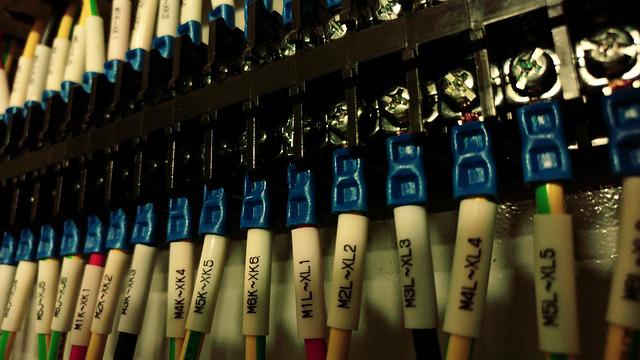Difference between Hub and Switch lies in their functioning

The network connecting devices are known as Hub and Switch. They are useful for connecting various devices. The one which works at the physical layer is the hub. It helps in transmitting the signal to the port. Switch on the other hand plays the role of routing the information. The message is sent over the network.
Let’s know about the hub and switch more.
Hub
Hub is a networking device that lets one connect a single network with multiple PCs. The role of hub is transmitting the signal to each port (except one). It gives a response when a signal is received. The hubs are based on USB connections, Firewire or Ethernet and do not have packet filtering. Active Hub and Passive Hub are its type.
Switch
Switch is the kind of network device that lets the establishment of the connection as well as its termination d, depending upon the requirement.
The Data link layer is on which switch works. It consists of packet filtering. As it connects various network segments, the switch is known to be an effective bridge and an advanced duplex transmission mode.
Check out the difference between Hub and Switch
- Functioning of the hub is through the Physical layer of OSI model whereas switch functions through the Data link layer of OSI Model.
- Hub consists of broadcast type transmission. On the other hand, switch is a mixture of Unicast, multicast and broadcast type transmission.
- There are 4/12 ports in the hub whereas there 24 to 48 ports in the switch.
- Hub consists of only one collision domain. On the other hand, switches have different ports with their own collision domain.
- Hub is having a half duplex transmission mode whereas switch is having a full duplex transmission mode.
- Switch has packet filtering whereas hub does not have packet filtering.
- Switch can be used in the form of a repeater which is not possible in the case of a hub.
- Compared to a hub, a switch is an intelligent device.
- Switch is more expensive than hub as it has the capability to transform messages to selected destinations.
- Switch is more widely used compared to Hub.
- Switch is a more sophisticated and advanced device compared to the hub.
- In hub, hacking the system is completed which is quite simple in case of switch.
- Switch is an active device whereas hub is a passive device as it does not have the software.
- Speed of the hub is 10 Mbps whereas the speed of the switch is 10/100 Mbps and 1 Gbps.
- Collisions in hubs are more common compared to switches.
Differences in performance of hub and switch
In comparison to hubs, the switch is a high performance device. If people have more than four computers at home, they can benefit from a switch rather than a hub. For heavy music file sharing or multiplayer games, switch is more useful.
Another major difference between hub and switch is that the hub broadcast model is used whereas the switch uses a virtual circuit model.
For instance, four computers are connected to a hub and two of those computers communicate with each other. In this case, hubs pass through each network traffic and that also with all the four computers.
On the other side switches have the capability to determine the destination of a particular traffic element like an Ethernet frame. It automatically sends the data to the computer that requires it. Switch gives better performance through generating less traffic on busy networks compared to hubs.
Read Also
